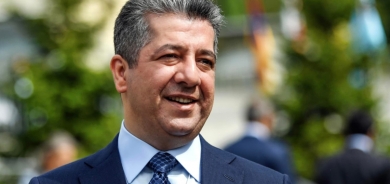Houthi rebels cede control of Yemen’s primary port, UN says

Saturday's transfer, which was confirmed by FRANCE 24's UN correspondent, was carried out under the supervision of UN monitors as part of a deal reached during peace talks in Sweden earlier this month. A UN team arrived in Hodeida earlier this week.
A Houthi spokesman also confirmed the transfer. "Our forces started withdrawing last night from the port of Hodeida, as agreed in Sweden," the spokesman said on Al’Massira, the movement’s television channel.
But a pro-government official told AFP that the loyalists were "surprised" by reports of a port handover.
"The Houthis have taken advantage of their control of Hodeida and placed their fighters in both the navy and coastguard, something that has been a major source of concern for the legitimate government," the offical said.
The Sweden truce agreement also provides for the withdrawal of forces from the ports of Salif and Rass Issa, the ports of entry for most of the humanitarian aid destined for the millions of Yemenis threatened by famine.
The talks in Sweden also produced a deal on the exchange of thousands of prisoners of war from both sides.
Key entry point
The port is the entry point for food aid to 14 million Yemenis on the brink of famine, according to UN figures, and the rebel withdrawal is a key part of a ceasefire that went into effect on December 18.
Pro-government forces are also supposed to pull back from parts of the city they recaptured in an offensive they launched on June 13 with the backing of a Saudi-led coalition.
The Houthis began "the first phase of redeployment from the Hodeida port", a rebel official told the Houthi-run Saba news agency.
The UN Security Council last week unanimously approved a resolution authorising the deployment of observers to oversee the hard-won truce for Hodeida.
Retired Dutch general Patrick Cammaert is heading a joint truce monitoring committee, which includes both government and rebel representatives, and chaired its first meeting this week. The UN-led panel addressed "the first phase of the implementation of the agreement... based on ceasefire, confidence building measures to deliver humanitarian assistance and redeployment," a UN statement said.
It added that the panel would convene again on January 1 to discuss "detailed plans for full redeployment".
Despite the start of the Houthi withdrawal, the agreement hit a stumbling block later on Saturday, with the coalition saying the rebels had not allowed an aid convoy to leave the port.
Coalition spokesman Turki Al-Maliki said that the insurgents "denied the exit of the UN humanitarian convoy ... headed to (rebel-held) Sanaa that was carrying 32 tonnes of flour", in a statement carried by state-run Saudi Press Agency.
The Houthis, in turn, said in a statement that the road was "not yet unblocked because the other side has not withdrawn" from Hodeida city.
The truce has remained shaky, with the two sides accusing each other of violations.
Yemen was plunged into civil war in 2014 when the rebels captured the capital Sanaa. They now control most of northern Yemen, including Hodeida. A Saudi-led coalition has been fighting on the government side since 2015.
(FRANCE 24 with AFP, REUTERS)














